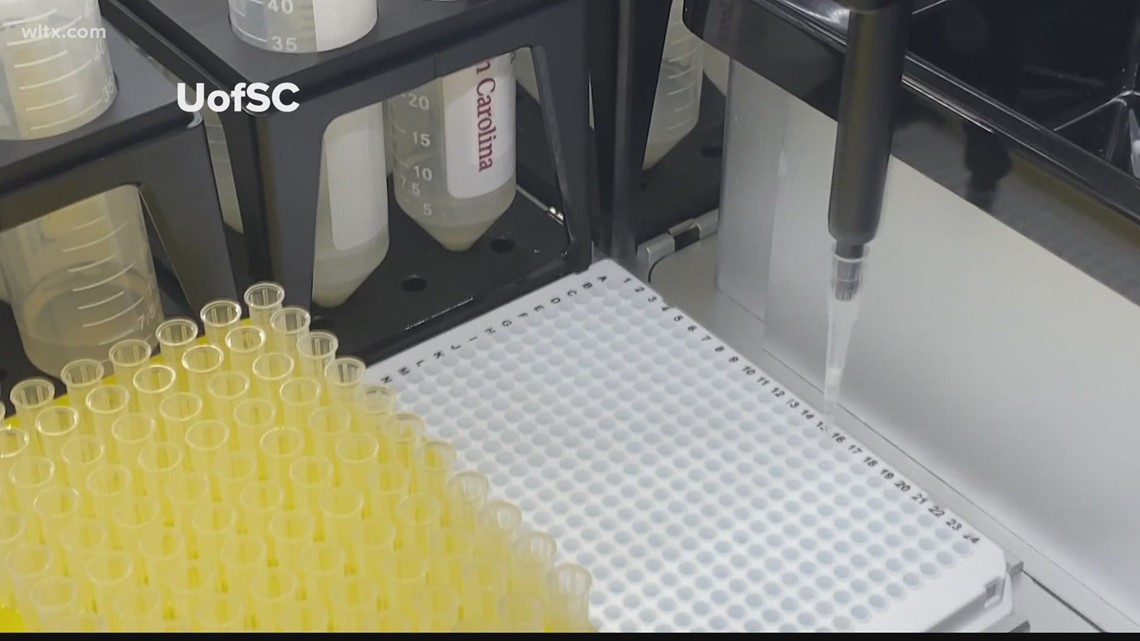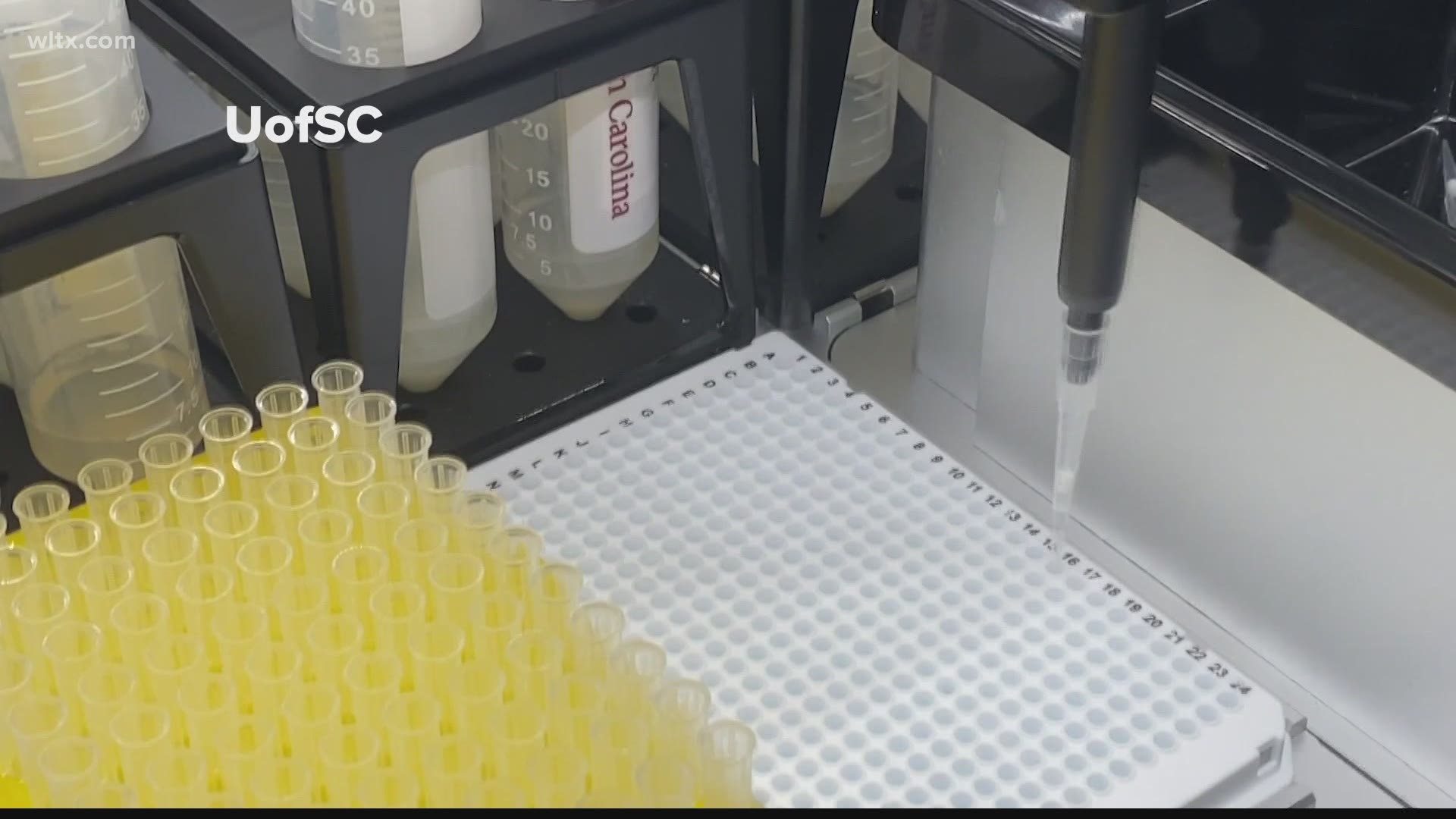COLUMBIA, S.C. — The University of South Carolina is testing for strains of the coronavirus.
According to the school, saliva-based COVID testing technology will allow them to better understand and diagnose new coronavirus cases and the spread.
Dr. Helmut Albrecht is the Director of the Center for Infectious Disease Research and Policy for Prisma Health and the University of South Carolina.
"The same group that actually established all the testing on the USC campus, they're all geneticists, actually," Dr. Albrecht said. "They've been characterizing this virus variants of which there are thousands and we expect there to be thousands."
The doctor says the group has been studying variants for many months now.
"If we see outbreaks, if we see certain patterns that do not fit, one of the ways they could look into this is by so-called sequencing the virus. So you see the genetic information for different viruses," explained Dr. Albrecht. "They have these mutations that may make a virus less infectious, more infectious, more virulent or more dangerous."


Dr. Albrecht says while strains of the virus were initially related to Chinese strains, South Carolina discovered early on strains were coming from Europe.
"The hoopla the new variants have caused in parallel with the rollout of the vaccine, it would be important for us to figure out whether this variant is here and whether we should change our vaccine or treatment strategies for instance," said Dr. Albrecht.
While Dr. Albrecht says they've figured out that the vaccine and all the antivirals seem to be working just as well with other variants, they want to be able to find out if new strains with new abilities are spreading through a campus or community.
Through the testing being done at the University of South Carolina, they will have information more quickly if they need to make changes.
"For now, the good news is none of these variants are really in response to the vaccine, but once the vaccine is rolled out, that is one of the problems we could be facing and it will be important to know that early," explained Dr. Albrecht.
The doctor says there are hundreds of labs across the globe who are participating in this kind of testing.
The group at the school can study any virus that is submitted to them. It can be a frozen or pre-analyzed virus or be an old or new test. Due to the costs, they won't sequence thousands of viruses per day, week or month.
"If there is an outbreak or something that comes up, another variant, we would be able to respond quicker than campuses that didn't have this availability," said Dr. Albrecht.
"It was important for us to figure out where these viruses are getting introduced from and how the virus moves in the community. USC, from the very beginning, has said one of the important things of all our testing is to not only protect our students and now our staff, but also the community."

